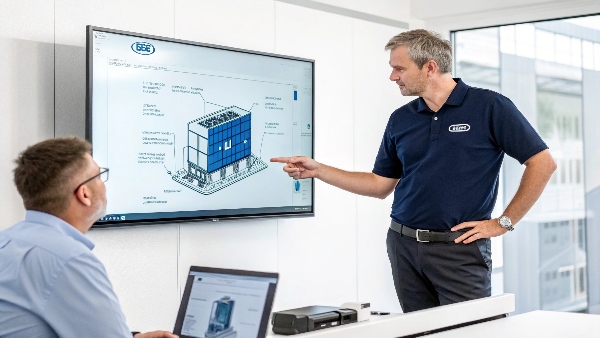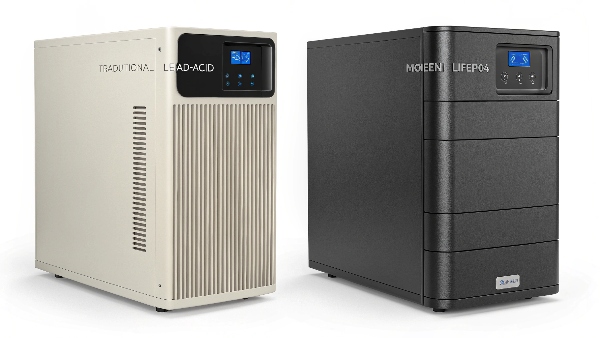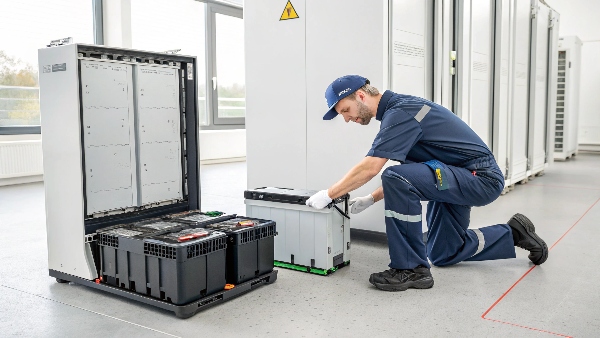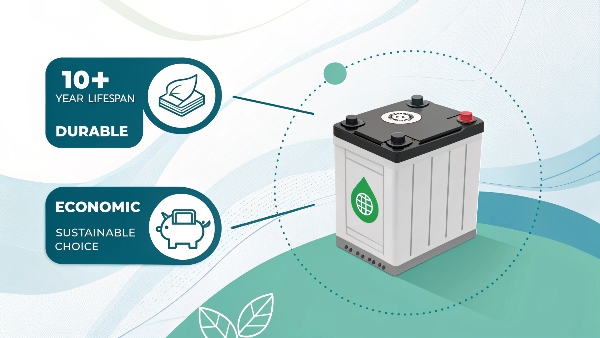Confused by UPS battery options? The wrong choice leads to frequent replacements and risks critical system downtime. A tailored Lithium-ion solution offers long-term reliability and peace of mind.
The best lithium-ion solution uses safe LiFePO4 chemistry and is correctly sized for your load. As an OEM/ODM expert, we analyze your needs—from voltage to runtime—to design a certified, reliable system that lowers your total cost and ensures uptime.

Transition Paragraph:
I've been in this business for over a decade here at Daopulse. In that time, I've seen a massive shift in what clients ask for. It used to be all about lead-acid. Now, system integrators and procurement managers like Mr. Li come to us asking specifically about lithium. They need to guarantee power for a new hospital or data center and can't afford any doubts. They need a solution that is durable, economical, and reliable. Let's explore the key questions they ask to find the right solution.
Can I Use a LiFePO4 Battery in a UPS?
You've heard LiFePO4 is the best lithium chemistry. But you worry if it's truly compatible with a UPS. Using the wrong tech can cause system failures and damage.
Yes, you can and you absolutely should. LiFePO4 (Lithium Iron Phosphate) is the ideal and safest lithium chemistry for UPS applications. Its stability, long cycle life, and excellent thermal properties make it a direct, high-performance upgrade over older battery technologies.

Dive deeper Paragraph:
The question of using LiFePO4 in a UPS is one I get almost every day. The answer is a strong "yes," and here's why it's not just possible, but preferable. First, safety is paramount. Unlike other lithium-ion chemistries used in phones or electric cars, LiFePO4 is chemically very stable. It is not prone to thermal runaway, which is a major concern for any equipment running 24/7 inside a facility. Second, performance. A LiFePO4 battery can handle over 2,000 full charge-and-discharge cycles. A typical lead-acid battery starts to degrade after just 300-500 cycles. This incredible durability is a game-changer. The final piece is the intelligence: the Battery Management System (BMS). The BMS is the brain inside the battery pack. It ensures every cell is balanced and protects the battery from over-charging or over-discharging. This active management is what makes it a smart, reliable, and perfectly compatible fit for a modern UPS.
What Is the Best Battery for a UPS?
You are faced with multiple battery options. This makes choosing the right one for your critical system feel overwhelming. A wrong decision leads to poor performance and higher costs.
For any modern critical application, a Lithium Iron Phosphate (LiFePO4) battery is the best choice. It provides the perfect balance of an extremely long life, superior safety, and the lowest total cost of ownership when compared to traditional lead-acid batteries.

Dive deeper Paragraph:
When a client asks me what the "best" battery is, I tell them to look at the total value, not just the initial price. For decades, lead-acid was the only option. Today, it is simply legacy technology. For any new critical system, LiFePO4 is the best by every important measure. We tell our clients to compare them directly. A lead-acid battery is heavy, bulky, and needs to be replaced every 3-5 years. A LiFePO4 battery is up to 60% lighter, takes up less space, and lasts 8-10 years with zero maintenance. This is why more and more people are choosing lithium-ion UPS. They understand that the "best" battery is one you can install and forget about. The peace of mind that comes from knowing your power backup is reliable for a decade is a huge factor for hospitals, data centers, and financial institutions.
| Feature | VRLA Lead-Acid Battery | LiFePO4 Lithium Battery |
|---|---|---|
| Lifespan | 3–5 Years | 8–10+ Years |
| Cycle Life | 300–500 Cycles | 2,000–5,000+ Cycles |
| Maintenance | Regular testing | Zero Maintenance |
| Weight & Size | Heavy and Bulky | Up to 60% Lighter & Smaller |
| Safety | Contains lead, acid | Thermally stable, no lead |
| Total Cost of Ownership | High | Low |
Can I Replace a Lead-Acid Battery With Lithium-Ion in a UPS?
Your UPS unit is fine, but the old lead-acid battery is dead. Throwing away the entire system seems wasteful. You want to know if a simple battery swap is possible.
Yes, you can often replace a lead-acid battery with a properly designed "drop-in" LiFePO4 replacement. However, it is critical that the lithium pack's internal Battery Management System (BMS) is compatible with your UPS's specific charging profile.

Dive deeper Paragraph:
This is a very practical question for anyone managing a fleet of older UPS systems. The concept of a "drop-in" lithium replacement is very appealing. In many cases, it works perfectly. We can design a LiFePO4 battery pack1 that has the same voltage and physical dimensions as the lead-acid battery it's replacing. However, the success of this swap depends entirely on the intelligence of the Battery Management System (BMS)2. A UPS is designed to charge a lead-acid battery in a very specific way (with bulk, absorption, and float charging stages). A good BMS in a lithium pack will correctly interpret this charging signal to safely manage the lithium cells. A poorly designed one will not, which can lead to undercharging or even damage. This is why you should never use a generic, off-the-shelf lithium battery. As an OEM, we can analyze a client's existing UPS and confirm if a custom, compatible drop-in replacement is a safe and cost-effective option.
Which Type of Battery Should I Use for a UPS?
You have to make the final choice. The pressure is on to select the right battery type that delivers value and reliability for your project for years to come.
You should use a Lithium Iron Phosphate (LiFePO4) battery for any critical system. More people are choosing it because it is more durable, economical, and environmentally friendly than any other option on the market today.

Dive deeper Paragraph:
So, the final decision: which battery should you specify for your project? Based on my experience and the clear trends in the market, the answer for any forward-looking project is LiFePO4. More and more people are choosing lithium-ion UPS, because they are environmentally friendly, economical, and durable. Let's break that down.
- Durable: An 8-10 year service life means you install it and you are done. It can handle thousands of charge cycles without degrading. It provides reliability you can count on.
- Economical: While the initial cost is higher, the total cost of ownership is much lower. You save money by eliminating battery replacement costs, maintenance labor, and the risk of costly downtime. It's a smarter investment.
- Environmentally Friendly: LiFePO4 batteries do not contain toxic heavy metals like lead. They are also lighter, which reduces shipping footprint. A longer lifespan means creating far less waste over the life of the system.
For these reasons, the choice is becoming very clear across the industry.
Conclusion
A LiFePO4 UPS is the modern choice. It's more durable, economical, and reliable, offering the best long-term protection for your critical equipment and your budget.

